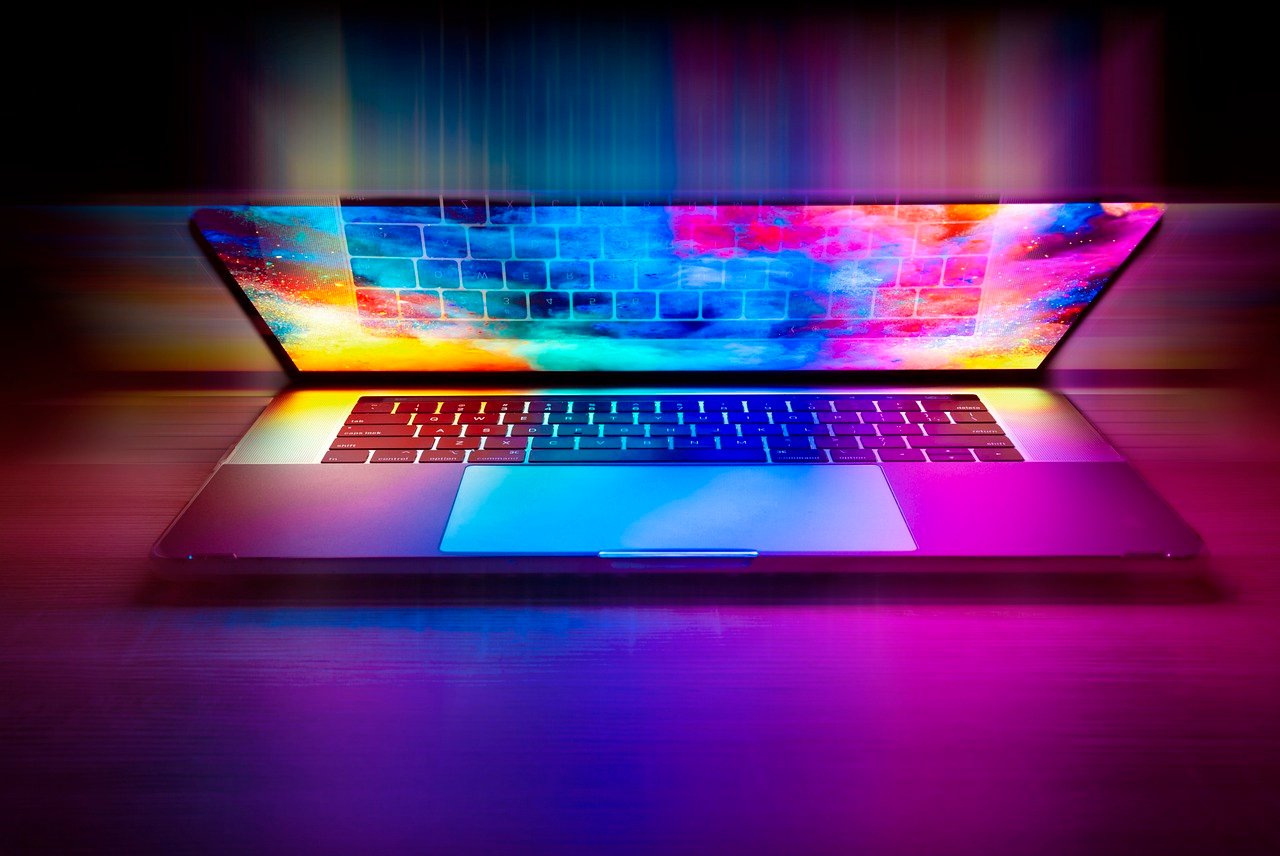Why Is My Computer So Slow? Tips to Speed It Up
Computers, like any machine, can experience slowdowns over time. If you’re wondering, “Why is my computer so slow,” you’re not alone. A sluggish computer can interrupt productivity, test your patience, and even frustrate simple tasks. Understanding the reasons behind a slow computer and addressing them effectively can bring it back to life. Here are some common causes and practical solutions to speed up your system and improve pc performance.

Reasons Why Your Computer So Slow
Too Many Programs Running in the Background
Background processes can take up significant resources without you noticing. Applications like cloud storage services, messaging apps, and other utilities may run automatically when you start your computer. Over time, these can bog down performance and make you wonder, “Why is my pc so slow?”
Insufficient RAM or Storage
Modern applications demand substantial memory to function smoothly. If your system has limited RAM or storage space, it will struggle to keep up, especially when multitasking or running heavy programs. This is often a key factor in why your computer is running slow.
Outdated Hardware
Older hardware may not be optimized for newer operating systems or software. If your system components, like the processor or hard drive, are outdated, they may significantly slow down your machine.
Malware or Viruses
Malicious software can affect system performance by consuming resources, corrupting files, or running unwanted processes in the background. It is one of the more critical reasons computers become slow over time. Regular virus scans using Windows Security can help prevent this issue.
Fragmented or Unoptimized Hard Drive
Traditional hard drives can become fragmented, meaning files are stored in scattered pieces across the drive. This increases the time it takes for the computer to locate and retrieve data. Regularly defragmenting your hard drive can help speed up your PC.
Too Many Startup Programs
Programs that automatically launch when you turn on your computer can increase boot time and consume resources, leaving less available for tasks you want to perform. Learning to disable startup programs can significantly improve your computer’s startup speed.
Outdated Software or Drivers
Keeping software and drivers updated ensures compatibility and optimal performance. Older versions can cause conflicts and reduce efficiency. Regular Windows updates and device driver updates are crucial for maintaining pc performance.
Practical Tips to Speed Up Your Computer
Limit Background Applications
Check the programs running in the background and close those that are not necessary. Most operating systems allow you to manage these through the task manager or system settings. Fewer active applications mean more resources available for the tasks you care about.
Increase RAM or Upgrade Storage
Adding more RAM or switching to a faster solid-state drive (SSD) can dramatically improve performance. SSDs, in particular, provide faster data access and boot times compared to traditional hard drives. An SSD upgrade is one of the most effective ways to speed up an old computer.
Check for Malware
Use reputable antivirus software to scan for and remove malware. Regular scans and updates to your security software help protect your system and maintain its speed. Windows Security, built into Windows 10, offers robust protection against various threats.
Uninstall Unused Programs
Applications you no longer use can still consume disk space and resources. Removing unnecessary software can free up valuable space and improve overall performance. This is a simple yet effective way to make your computer faster.
Defragment Your Hard Drive or Optimize Storage
For traditional hard drives, defragmentation organizes scattered files, making data retrieval faster. Many operating systems offer built-in tools to perform this task. If your computer has an SSD, skip this step, as SSDs do not benefit from defragmentation. Instead, use Storage Sense to optimize your storage automatically.
Manage Startup Programs
Review the list of applications that launch at startup and disable those you do not need immediately. This adjustment can significantly reduce boot times and improve overall responsiveness, helping to speed up your PC.
Keep Software and Drivers Updated
Regular updates ensure your computer can handle modern applications efficiently. Updates often include performance improvements and bug fixes, which are beneficial to your system. Make sure to update software and device drivers regularly.
Clean Up Your Desktop
A cluttered desktop with too many icons can slow down your system. Organize your files into folders and keep your desktop tidy to reduce unnecessary load on your computer. This simple step can help speed up your laptop or desktop.
Perform Regular Maintenance
Clearing temporary files, updating your operating system, and checking for system errors are simple maintenance tasks that can keep your computer running smoothly. Use Disk Cleanup to free up disk space and delete temporary files regularly.
Hardware-Specific Solutions
Upgrade Your Processor
If your computer’s processor is outdated, upgrading it might provide the speed boost you need. This is a more complex solution, but it can significantly enhance performance, especially for resource-intensive tasks.
Consider Adding a Graphics Card
A dedicated graphics card can take the load off the CPU and improve overall speed for users running graphics-heavy applications, like video editing or gaming.
Replace an Old Hard Drive
Switching from a traditional hard drive to an SSD can transform your computer’s performance. Faster read and write speeds lead to quicker boot times and faster application launches. This upgrade is one of the most effective ways to speed up a slow computer.
Software-Specific Solutions
Reinstall Your Operating System
Over time, operating systems can accumulate unnecessary files and settings that slow things down. Reinstalling the system offers a clean slate and can resolve persistent issues. Before doing this, create a system restore point as a precaution.
Switch to Lighter Software Alternatives
If your system struggles with resource-heavy applications, consider using lighter alternatives that perform similar functions with less demand on your hardware.
Optimize Browser Settings
Web browsers can slow down a computer, especially when multiple tabs are open. Clearing browser cache and disabling unnecessary extensions can help. Also, manage browser extensions regularly to ensure they’re not consuming too many resources.
Long-Term Practices to Maintain Speed
- Regular Updates: Keep both your operating system and applications updated.
- Scheduled Maintenance: Set a reminder to clean your system regularly, including clearing unnecessary files and checking for updates.
- Avoid Overloading Your System: Resist the temptation to run too many programs simultaneously, especially on older computers.
- Use ReadyBoost: If your computer has a USB port, you can use ReadyBoost with a USB flash drive to boost your system’s performance.
- Adjust Power Settings: Changing your power plan to high performance can speed up your PC, though it may consume more energy.
When It Might Be Time for a New Computer
If you have tried all the above steps and your computer still lags, it may be time to consider an upgrade. Older systems have inherent limitations, and investing in a new computer could save you time and frustration in the long run.
Check out: 8 Best Laptops for Blogging in 2025
Whether you’re dealing with work, study, or leisure activities, a slow computer can be a constant source of frustration. Identifying the root cause and applying these solutions can breathe new life into your machine. Regular maintenance, careful use, and timely upgrades will help ensure your computer stays responsive and reliable for years.
Remember, consistent care and optimization are key to maintaining a fast computer. By following these tips on how to speed up your computer and regularly asking yourself, “How can I make my laptop faster?”, you’ll enjoy a smoother, more efficient computing experience.

Your blog is a treasure trove of knowledge! I’m constantly amazed by the depth of your insights and the clarity of your writing. Keep up the phenomenal work!
Awesome! Its genuinely remarkable post, I have got much clear idea regarding from this post
I very delighted to find this internet site on bing, just what I was searching for as well saved to fav
Great information shared.. really enjoyed reading this post thank you author for sharing this post .. appreciated
I just like the helpful information you provide in your articles
I like the efforts you have put in this, regards for all the great content.
I really like reading through a post that can make men and women think. Also, thank you for allowing me to comment!
I am truly thankful to the owner of this web site who has shared this fantastic piece of writing at at this place.
Awesome! Its genuinely remarkable post, I have got much clear idea regarding from this post